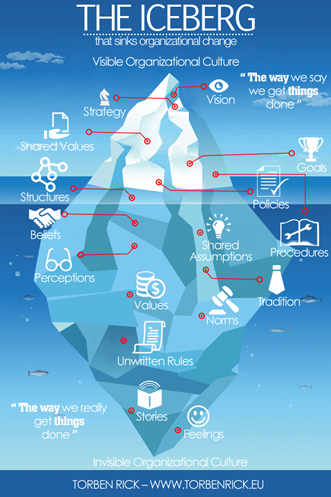What Is Corporate Culture?
My purpose in revisiting these memories with you is to introduce a concept that impacts every word we speak or write in a business setting. That concept is corporate culture. Let’s break it down. We can define “culture” as the beliefs, values, and practices of a particular group of people at a particular point in time. Cultures can span whole countries and entire ethnic groups, and yet be as specific as the rituals and words families or friends use. Like countries, families, and other connected groups of humans, companies develop cultures of their own. We can define corporate culture, or, more broadly, organizational culture, as
the tacit social order of an organization: It shapes attitudes and behaviors in wide-ranging and durable ways. Cultural norms define what is encouraged, discouraged, accepted, or rejected within a group. When properly aligned with personal values, drives, and needs, culture can unleash tremendous amounts of energy toward a shared purpose and foster an organization’s capacity to thrive. (Groysberg, 2018)
Culture impacts all aspects of a business, from layout and design of workspaces to distribution of power, dress codes, language, work ethic, workplace pranks (or lack thereof), and company gatherings. Corporate culture can be thought of as an iceberg—the values the company displays and embraces are above the surface, but beneath the surface are equally important values, behaviors, and even unwritten rules and expectations that are essential to success. As illustrated by the jobs I described earlier from my time in Idaho, corporate culture can have quite an impact on the quality of one’s workplace experience.


